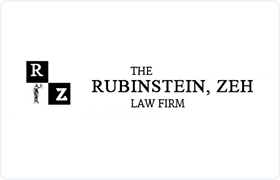 East Moriches Trusts Lawyers, New York
East Moriches Trusts Lawyers, New York
Sponsored Law Firm
-
 x
x

Click For More Info:
-
The Law Firm of Rubinstein, Zeh and Associates
445 Broadhollow Rd. Suite CL-10 Melville, NY 11747» view mapEstate Law Full Service Law Firm
The Law Firm of Rubinstein, Zeh and Associates has built its practice primarily on word-of-mouth among our clients and the trusted referrals from our colleagues.
800-960-1529
Sponsored Lawyers
1-4 of 4 matches
2 Arabian Court
East Moriches, NY 11940
Estate, Wills & Probate, Trusts
Corporate, Estate Planning, Guardianships & Conservatorships, Trusts
Trusts, Divorce & Family Law, Litigation, Lawsuit & Dispute



 Christine Rubinstein Melville, NY
Christine Rubinstein Melville, NY AboutThe Law Firm of Rubinstein, Zeh and Associates
AboutThe Law Firm of Rubinstein, Zeh and Associates Practice AreasExpertise
Practice AreasExpertise


